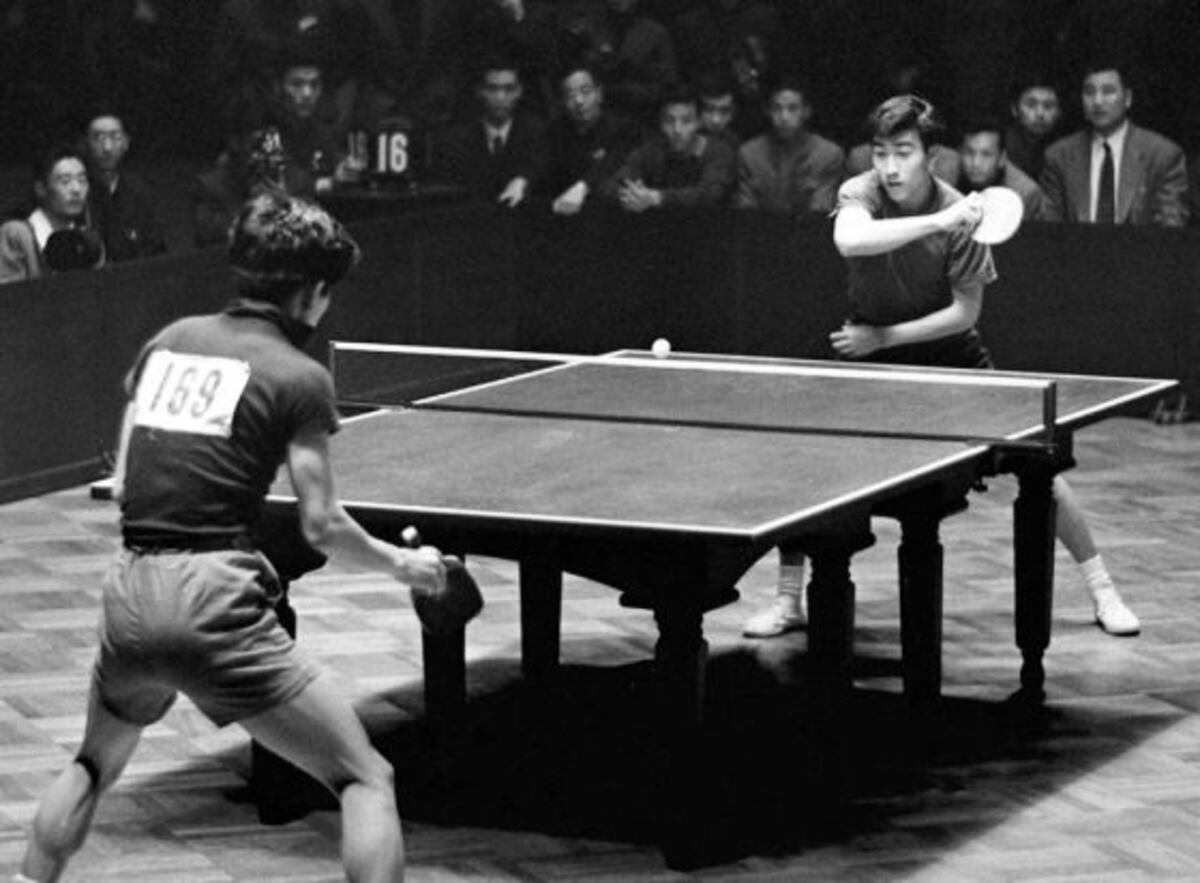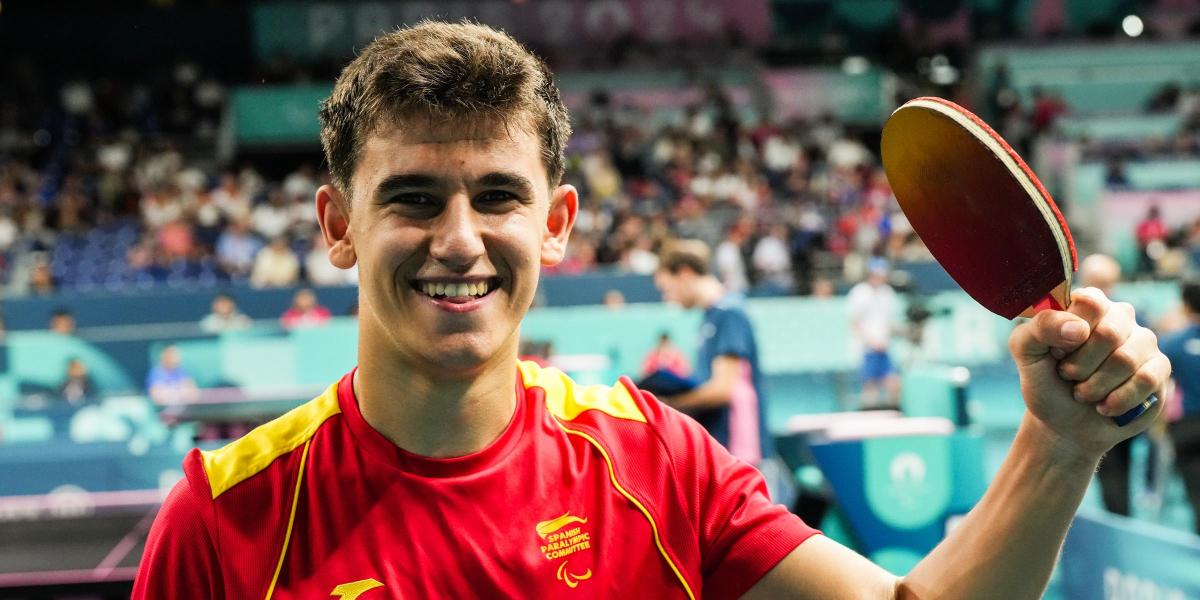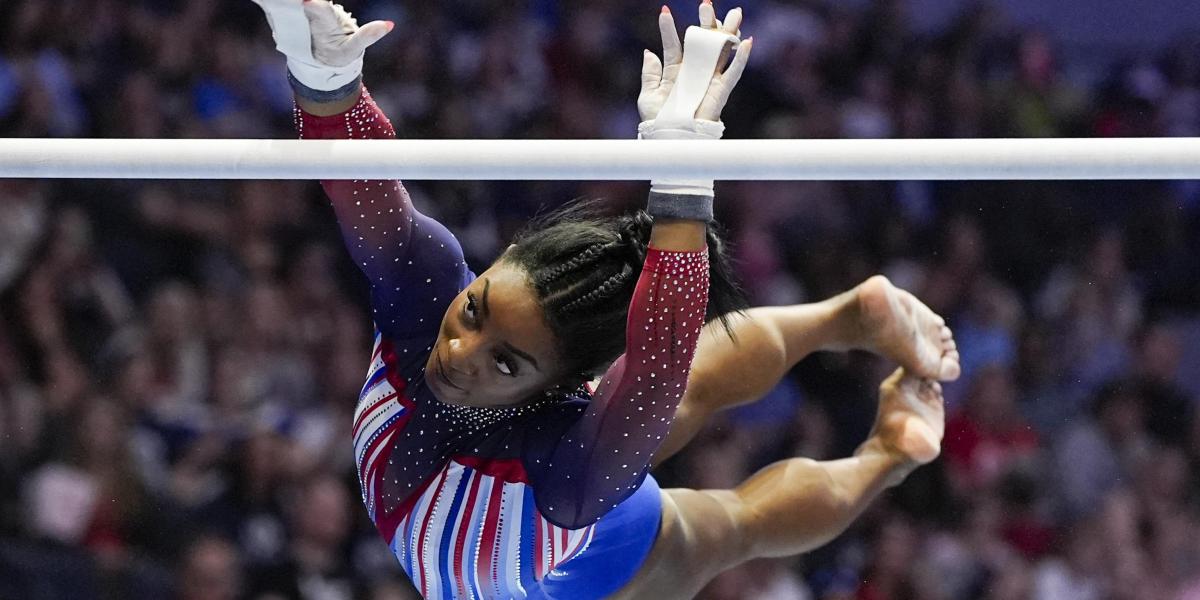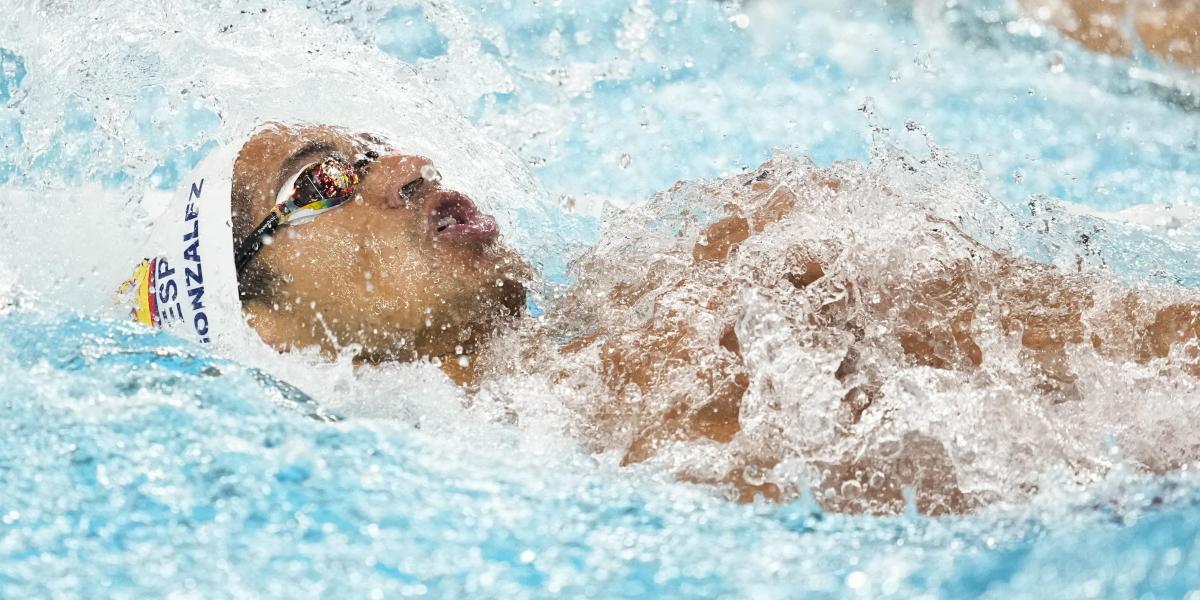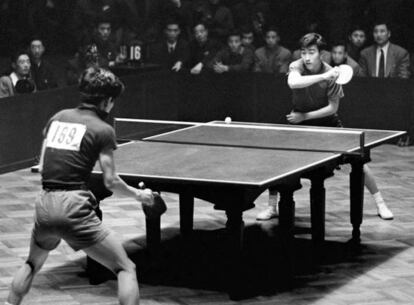
Zhuang Zedong, Triple World Table Tennis Champion and one of the key figures in the so -called Pimpón diplomacy, which allowed the thaw of relations between China and the United States in the 1970s, died yesterday in Beijing, according to the official agency Xinhua. Zhuang struggled against cancer since 2008. He died at the age of 72.
The Chinese player became popular because he gave a silk handkerchief with a Chinese motive to the American player Glenn Cowan, after he lost his bus and was transported in that of the Chinese team during the world championships held in Nagoya (Japan) in 1971. Zhuang and Cowan were photographed together, which had a great international impact in a time in which China and the United States were found rivals of the cold war. “Although the United States government is hostile with China, American citizens are friends with the Chinese. I give this in friendship between the Chinese people and the American people,” he told Cowan by offering him the gift, as he told the Reuters agency in 2007.
The incident caught the attention of Chinese leader Mao Zedong, who quickly attended an invitation to the American team to travel to China after finishing the competition in Nagoya, in order to celebrate a visit that broke the ice between the two countries. “Zhuang Zedong not only knows the Pimpón well, but also knows of good diplomacy,” said the great helmsman. It was the first American delegation that China visited since the communists took power in 1949.
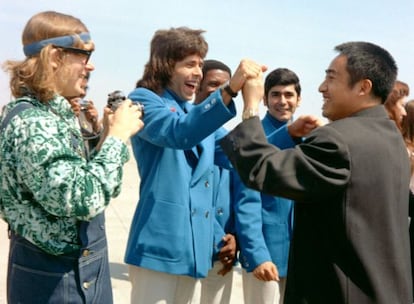
The trip led to the improvement of relations between the two governments. After 10 months, in February 1972, US President Richard Nixon made a historic trip to China, which led to the establishment of diplomatic relations in 1979.
A bold back
Zhuang raised passion in his country with his triumphs in the World Pimpón championships in 1961, 1963 and 1965; Thanks to its innovative way to wield the shovel, as if it were a pen, and its bold offensive setbacks. The Chinese athlete became a favorite of Mao's wife, Jiang Qing, a member of the so-called band of the four, who dominated the scene during the cultural revolution (1966-1976). Jiang placed Zhuang in different political positions in the country's ministry.
After the death of Mao, in 1976, and the consequent purge of the band of the four for his excesses, Zhuang was investigated and arrested four years. After being released, he spent years training the provincial team of Shanxi. In 1985, he returned to Beijing, where he continued to train young players. Born in Yangzhou, in the coastal province of Jiangsu, Zhuang married twice – the second, with a Japanese – had a daughter of his first marriage.
